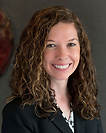Funds must be in tax exempt retirement account – not merely traceable to a retirement account – on filing date to qualify for § 522(d)(12) exemption.
In re Pellegrini, Bankr. W.D. Mich., Case No. 09-90464, Hon. James D. Gregg (Jan. 17, 2012).
When Congress adopted BAPCPA, it added an exemption for "[r]etirement funds to the extent that those funds are in a fund or account that is exempt from taxation" under certain provisions of the Internal Revenue Code. 11 U.S.C. § 522(d)(12). Although broader than the exemption previously available for retirement funds, § 522(d)(12) is not limitless – as the Bankruptcy Court for the Western District of Michigan recently emphasized.
In In re Pellegrini, the debtor held funds in an individual retirement account (IRA). Several years before his bankruptcy filing, the debtor transferred $150,000 from the IRA to a Florida company that ultimately defrauded the debtor and other investors. The debtor sued the company and obtained a judgment in the amount of $302,663.78, which the debtor then assigned to a collection company. Under the assignment, the debtor was entitled to receive 50% of any recovery.
The debtor then filed a Chapter 7 petition and failed to disclose the judgment. After the judgment was discovered, the debtor amended his schedules and described the judgment as a "self-directed IRA rollover." The debtor claimed an exemption in this "self-directed IRA rollover" under § 522(d)(12), and the trustee objected.
The Bankruptcy Court sustained the trustee's objection and held that the judgment could not be exempted under § 522(d)(12). In so holding, the court reasoned that exemptions are determined on the date of the bankruptcy filing, and when debtor filed bankruptcy, the funds were not in a qualified tax exempt account.
The court rejected the debtor's argument that the exemption should be allowed because the debtor intended to transfer any recovery from the judgment into an IRA. The court likewise rejected the debtor's argument that the judgment represented funds in a "constructive trust" for the debtor's benefit. Rather, the court focused on the plain language of § 522(12), which requires the funds to be in a qualified tax exempt account – not merely traceable to a retirement account.
This case reiterates the court's position that exemptions are determined as of the filing date and that funds must be in a retirement account on that date to qualify for a § 522(d)(12) exemption.
Categories: Chapter 7, Western District of Michigan

Laura's practice focuses on bankruptcy, municipal law, collections, and trial-level and appeals litigation. In the bankruptcy arena, she represents primarily Chapter 7 trustees. Laura has handled a wide range of trial and appellate matters for individual and business clients and has appeared before the U.S. Sixth Circuit Court of Appeals, the Michigan Court of Appeals, and the United States Bankruptcy Court for the Western District of Michigan, as well as Michigan circuit and district courts across the state.
View All Posts by Author ›Categories
- Fraud & Abuse
- Chapter 13
- Did you Know?
- Billing/Payment
- 6th Circuit Court of Appeals
- Property Tax
- Western District of Michigan
- Eastern District of Michigan
- Collections
- Landlord-Tenant
- Personal Property Tax
- Case Law Updates
- U.S. Supreme Court
- Chapter 11
- Chapter 7
- Zoning & Land Use
- Financing
- Estate Planning
- Alerts and Updates



 Share
Share